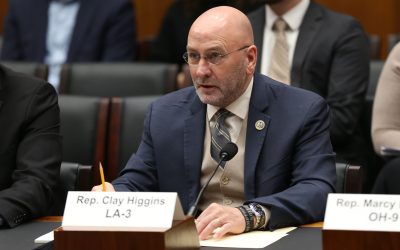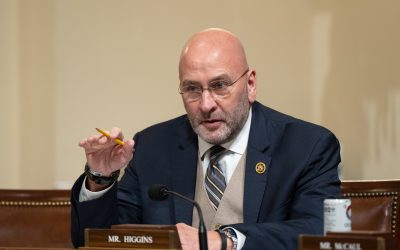WASHINGTON, D.C. – Congressman Clay Higgins (R-LA) voted in favor of H.R. 3548, the Border Security for America Act, which strengthens tactical border infrastructure and authorizes more boots on the ground. He is an original cosponsor of the bill.
As the United States faces new and evolving threats to our national security, the bill targets illegal immigration and drug and human trafficking with a multi-layered approach at our nation’s borders. The bill authorizes construction of the border wall, additional Border Patrol Agents and Customs & Border Patrol Officers, and advanced technologies to detect and deter illegal border crossings.
“Americans are frustrated with Washington’s failure over the last 8 years to enforce our existing immigration laws,” said Rep. Higgins. “Securing our borders is first and foremost a national security issue. We must take greater action to combat illegal human and drug trafficking. Our bill authorizes all necessary assets to secure the border, including tactical infrastructure, physical barriers, and advanced technology like drones and surveillance dirigibles.”
Key Points of the Bill:
- Authorizes Border Wall – provides $10 billion for the deployment and construction of tactical infrastructure and technology, including wall, fencing, technology, air assets, and other barriers.
- Secures Ports of Entry – provides $5 billion to improve, modernize, and enhance our ports of entry, targeting illegal immigration and drug trafficking at our ports while increasing lawful trade and travel.
- Puts More Boots on the Ground – adds 5,000 Border Patrol Agents and 5,000 CBP Officers.
- Use of the National Guard – authorizes use of the National Guard along the southern border to help with aviation and intelligence support to help secure the border.
- Targets Visa Overstays – Identifies visa overstays through full deployment of the Biometric Entry-Exit System at all ports of entry.
- Supports Local Law Enforcement – provides additional grant resources for state and local law enforcement to aggressively fight drug trafficking, smuggling, and other crimes on the southern border.



